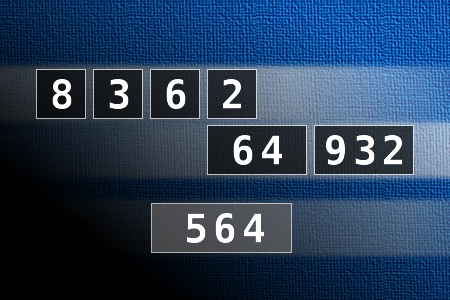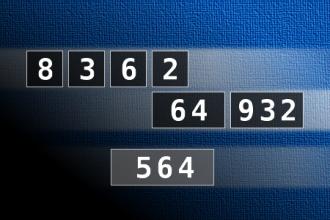Calculate the number 564
NUMBERMANIA: Calculate the number 564 using numbers [8, 3, 6, 2, 64, 932] and basic arithmetic operations (+, -, *, /). Each of the numbers can be used only once.Correct answers: 9
The first user who solved this task is Nasrin 24 T.
#brainteasers #math #numbermania

